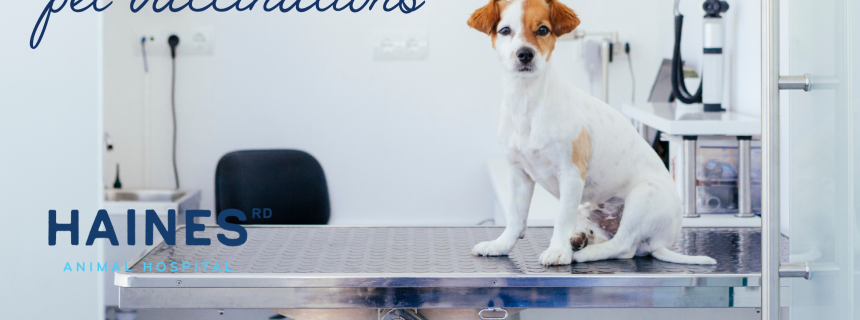The 411 on Pet Vaccinations

Effective vaccines can give you peace of mind when it comes to the good health of your pets. And in fact, many states and municipalities require proof of immunization for dogs and cats. Thanks to vaccination programs in the U.S, encountering a rabid dog on your daily walk is highly unlikely.
Fortunately, adhering to recommended vaccine protocols means we have the luxury of not worrying quite so much about such things.
However, you may be curious how veterinary vaccines work and wonder what’s the difference between Core and lifestyle vaccines. In this article, we’ll aim to answer these questions and more.
Vaccine Basics
But first, let’s look at a brief overview of vaccine basics. This explanation is from NOAH, a UK animal rights organization:
“Vaccines work by stimulating an immune response in an animal without causing the disease itself. When healthy animals are vaccinated, their own immune system responds to the vaccine and can remember the infectious agent to which the animal is vaccinated. This means, if appropriately vaccinated animals are then exposed to the pathogen against which they have been vaccinated, they can expect a level of protection from disease.”
Core Vaccines
Some vaccines – like rabies – are government mandated for public safety. There is also a standard vaccination schedule for puppies and kittens at 6, 12, and 16 weeks of age, respectively, which covers immunizations against distemper, parvo, hepatitis, and other dangerous diseases.
These are examples of “core” vaccines that veterinarians recommend for nearly all pets. Then, your dog or cat will need boosters periodically throughout their lives.
Core vaccinations are considered vital to both canines and felines, based on a universal risk of exposure, the severity of disease, and the risk of transmission to other dogs, as well as other animal species including human beings.
Lifestyle Vaccines
Although these vaccines are not considered Core, they are very important for pets who may be exposed to infectious diseases. At your pets’s next appointment, we will be happy to review which make the most sense for your pet and make the appropriate recommendations.
Although vaccinations are very important to the overall health and wellness of your companion, not every pet needs to be vaccinated against every disease. Some vaccinations should only be administered depending upon factors including:
- Age
- Medical history
- Environment
- Travel habits
- Lifestyle
Therefore, it is very important for us to discuss the vaccination protocol that’s right for your canine companion at your next appointment.
The Importance of Vaccines to Your Dog or Cat’s Health
Vaccines are important for your pet’s health. When puppies and kittens are first born, they have limited protection against diseases like parvo and rabies. That protection weakens and disappears within the first few weeks of their lives.
That’s why veterinarians have a standard approach to “puppy shots” and “kitten shots” when pets are young. As they get older, they’ll require “booster” shots at regular intervals which your veterinarian will discuss with you.
In addition to protecting your pet’s health, most local ordinances require proof of immunization against diseases like rabies. Besides keeping your pet healthy, immunizations are also cheaper than treatment. Is your pet due for a checkup? Reach out to us!
Attribution Link:
